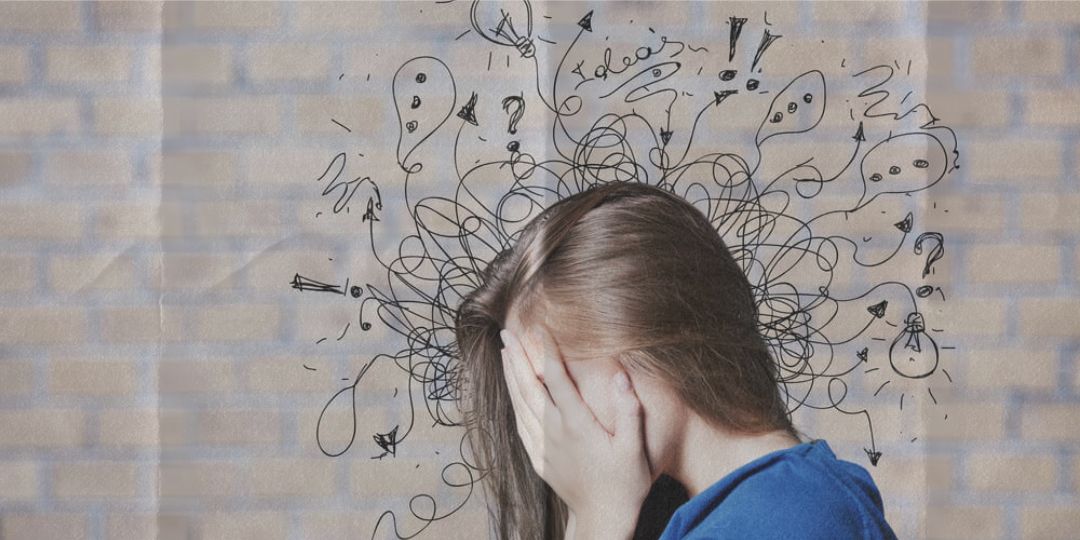

Signs and Symptoms of Anxiety in Teenagers
Adolescence is a phase of numerous physical, emotional, and social transformations. During this period, it is common for young people to face a variety of challenges that can trigger anxiety. Understanding the signs and symptoms of anxiety in teenagers is crucial for parents, educators, and teenagers themselves to identify and manage this problem effectively.
♦ What is Anxiety?
Anxiety is a natural response to stress and can be helpful in dangerous situations, preparing the body to react to a threat. However, when anxiety becomes excessive or persistent, it can interfere with a teenager’s daily life, affecting their academic performance, social interactions, and mental health.
There are different types of anxiety disorders, including generalized anxiety disorder, panic disorder, specific phobias, social anxiety disorder, and obsessive-compulsive disorder. Each of these disorders may manifest differently in teenagers.
♦ Why Are Teenagers More Susceptible to Anxiety?
Adolescence is a period characterized by significant changes, such as identity development, the search for independence, and the pressure to fit in socially. These factors, combined with hormonal changes, make teenagers more vulnerable to anxiety. Additionally, academic expectations, peer pressure, and intensive use of social media can contribute to increased anxiety levels.
♦ Key Signs and Symptoms of Anxiety in Teenagers
Recognizing the signs and symptoms of anxiety can be challenging, especially since many teenagers may not openly express what they are feeling. However, some common signs may indicate the presence of anxiety:
Physical Symptoms
- Heart palpitations: A sensation of a racing or pounding heart.
- Fatigue: Extreme tiredness, even after a good night’s sleep.
- Headaches and stomachaches: Frequent complaints of pain, often without a clear medical cause.
- Muscle tension: Stiffness in muscles, especially in the shoulders and neck.
- Excessive sweating: Sweating in stressful situations or without apparent reason.
Emotional Symptoms
- Constant worry: Persistent and difficult-to-control thoughts about future or past events.
- Irritability: Easily getting irritated or upset, even in trivial situations.
- Irrational fear: Fears that seem exaggerated or unfounded.
- Panic feelings: A sensation of terror or fear in response to seemingly ordinary situations.
Behavioral Symptoms
- Avoidance: Avoiding social or school situations that cause stress.
- Isolation: Preference for being alone, avoiding interactions with friends and family.
- Difficulty concentrating: Problems focusing on school tasks or other activities.
- Changes in appetite: Significant increase or loss of appetite, often linked to stress.
- Sleep problems: Insomnia or difficulty sleeping due to constant worries.
Cognitive Symptoms
- Intrusive thoughts: Repetitive and unwanted thoughts that cause discomfort.
- Catastrophizing: Tendency to imagine the worst-case scenario in any situation.
- Difficulty making decisions: Uncertainty or fear of making choices, even in simple matters.
- Cognitive distortions: Distorted perceptions of reality, such as believing that everyone is criticizing or judging.
♦ How to Differentiate Anxiety from Other Mental Health Issues
Anxiety in teenagers can overlap with other mental health issues, such as depression and attention-deficit/hyperactivity disorder (ADHD). It is important to observe the pattern of symptoms and consider their intensity and duration to differentiate anxiety from other conditions. For example, while depression is more associated with feelings of sadness and hopelessness, anxiety tends to manifest as excessive worry and fear.
♦ When to Seek Professional Help
Although anxiety is common, it is crucial to know when it crosses the line of what is considered normal. If a teenager’s anxiety interferes with their daily life, such as in academic performance, social relationships, or physical health, it’s time to seek professional help. Psychologists and doctors specializing in teenagers can provide accurate diagnoses and develop effective treatment plans.
♦ Strategies for Coping with Anxiety
There are several strategies that can help teenagers cope with anxiety:
- Mindfulness and Meditation: Practices that teach teenagers to focus on the present and reduce anxious thoughts.
- Cognitive-Behavioral Therapy (CBT): A therapeutic approach that helps identify and change negative thought patterns.
- Regular Physical Exercise: Physical activity can reduce anxiety symptoms, improving mood and energy.
- Healthy Diet: A balanced diet can positively influence mood and energy levels.
- Family Support: A supportive and understanding home environment is crucial for teenagers to feel safe expressing their concerns.
♦ The Importance of Open Dialogue
Encouraging open dialogue about anxiety can be one of the most effective ways to help teenagers. Parents, teachers, and mentors should create an environment where young people feel comfortable talking about their fears and worries without fear of being judged.
Understanding the signs and symptoms of anxiety in teenagers is the first step in providing the necessary support. By recognizing and addressing anxiety early, we can help teenagers develop healthy coping mechanisms and grow with more confidence and resilience. If you notice that a teenager close to you is showing signs of anxiety, do not hesitate to seek professional help and offer your support.
Read Also
• The Impact of Social Media on Teen Anxiety
• Strategies and Techniques for Managing Anxiety in Teenagers
• Social Anxiety in Teenagers: Causes, Symptoms, and Ways to Overcome
• How Parents Can Help Their Children Deal with Anxiety
• MD Marcelo Meirelles
– Pediatrician
– Adolescent Medicine Specialist
– Child and Adolescent Psychiatry